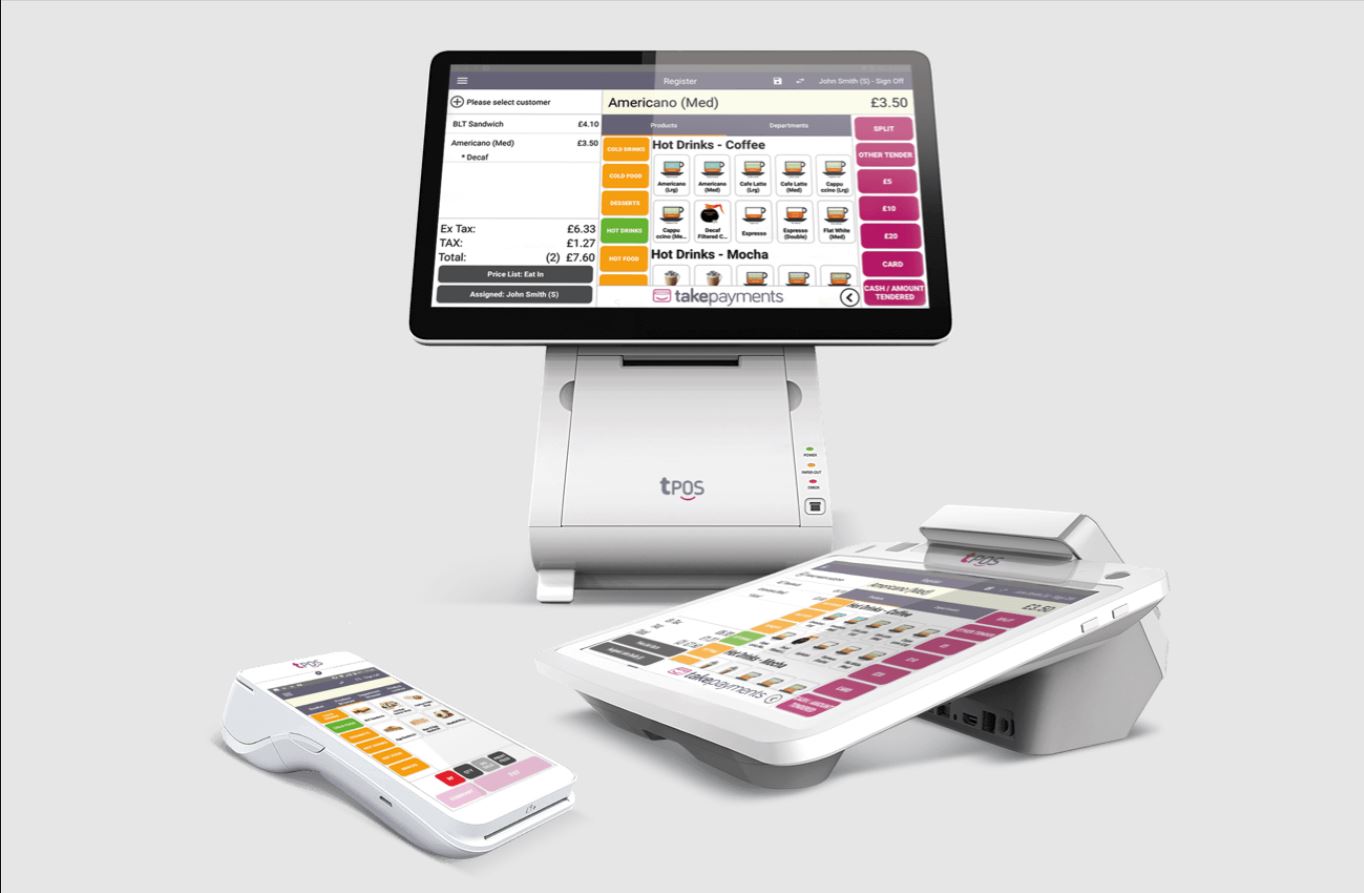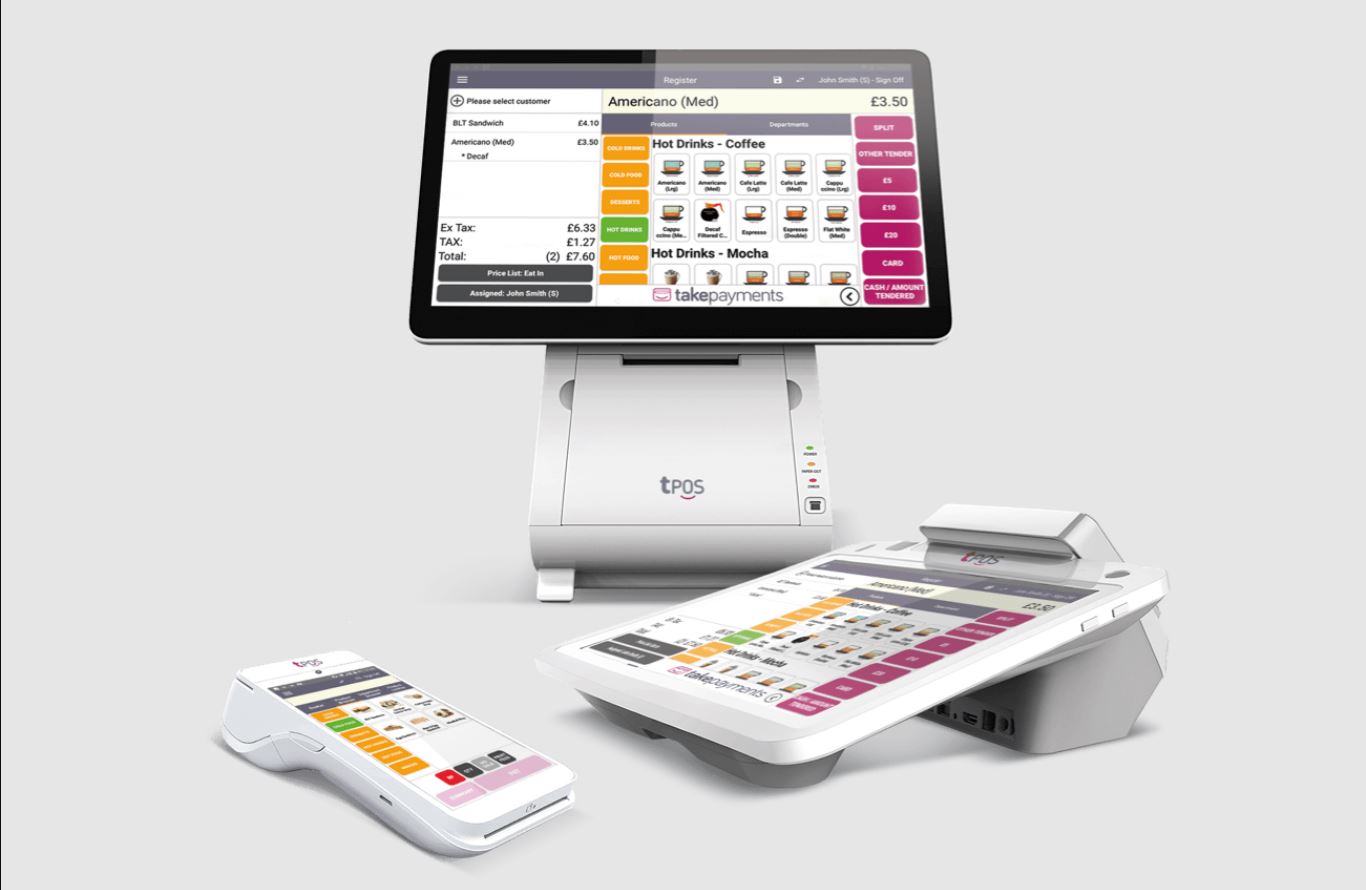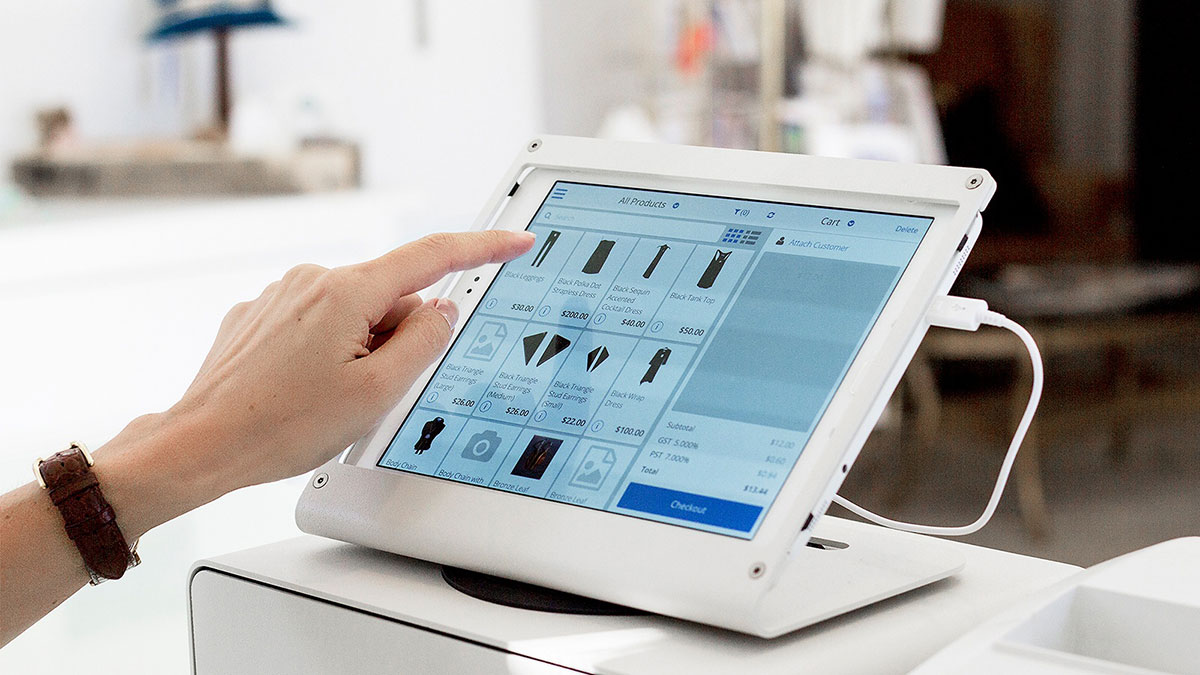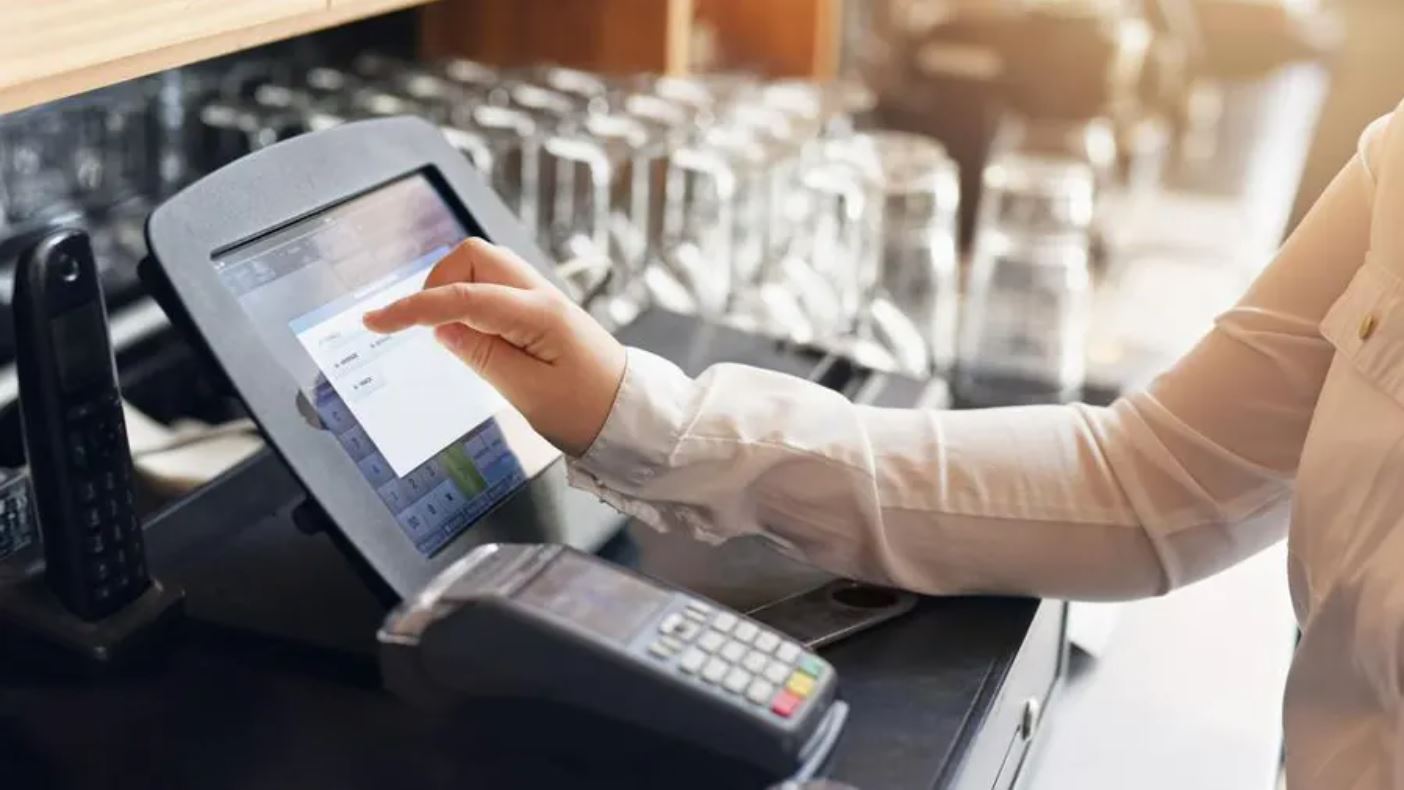Introduction
A Point of Sale (POS) system is a valuable tool for businesses of all sizes, offering a range of benefits that can streamline operations, improve efficiency, and ultimately boost profitability. It serves as the central hub for processing sales, managing inventory, and reporting on various aspects of the business.
Traditionally, businesses relied on manual processes for sales and inventory management, which were time-consuming and prone to errors. However, with advancements in technology, POS systems have become essential for modern businesses to thrive in today’s competitive landscape.
Whether you own a retail store, a restaurant, or an online business, implementing a POS system can revolutionize the way you conduct business and maximize your potential for success.
In this article, we will delve into the numerous benefits of implementing a POS system, ranging from streamlining the sales process to improving customer service and increasing revenue.
So, let’s explore how a POS system can transform your business and help you stay ahead of the competition.
This content is valid HTML encoding.
Streamlined Sales Process
A POS system is designed to streamline the sales process, making transactions faster, more accurate, and efficient. With a user-friendly interface, employees can seamlessly navigate through the system, ring up sales, and process payments with just a few clicks.
One of the key advantages of a POS system is the ability to accept various payment methods, including credit and debit cards, mobile wallets, and online payment services. This flexibility not only caters to the diverse preferences of customers but also reduces the risk of lost sales due to limited payment options.
Additionally, a POS system keeps track of the entire sales history, allowing businesses to access past transactions, customer records, and purchase patterns. This wealth of information enables companies to analyze customer behavior and preferences, identify trends, and make data-driven decisions to optimize their sales strategies.
Besides processing sales, a POS system also facilitates smooth inventory management. It automatically updates the inventory database in real-time, reflecting the quantity sold and available. This ensures that businesses can accurately track stock levels, prevent overselling, and streamline the stock replenishment process by generating automated purchase orders when stock reaches a specified threshold.
Furthermore, with a POS system, businesses can generate detailed sales reports that provide insights into various performance metrics, such as top-selling products, average transaction value, and customer buying patterns. These reports help businesses identify their best-performing products, evaluate the effectiveness of marketing campaigns, and make informed decisions to drive sales growth.
By streamlining the sales process, a POS system saves valuable time for both customers and employees. Customers experience shorter wait times at the checkout, leading to higher customer satisfaction and increased likelihood of repeat business. Employees, on the other hand, can focus on providing excellent customer service rather than being bogged down by manual processes and tedious paperwork.
To sum up, a POS system revolutionizes the sales process by simplifying transactions, offering multiple payment options, providing comprehensive sales data, and optimizing inventory management. Embracing this technology empowers businesses to deliver exceptional customer experiences and enhance overall operational efficiency.
This content is valid HTML encoding.
Efficient Inventory Management
Efficient inventory management is crucial for businesses to optimize their operations and maximize profitability. A POS system plays a vital role in this aspect by providing businesses with accurate and real-time inventory management capabilities.
With a POS system, businesses can easily track their inventory levels, ensuring that they have the right products in stock at all times. The system automatically updates the inventory count whenever a sale is made, minimizing the risk of overselling or stockouts. This real-time visibility into inventory helps businesses avoid the loss of potential sales due to insufficient stock.
Moreover, a POS system can generate automated purchase orders based on predefined inventory thresholds. This streamlines the reordering process, saving businesses time and effort. By automatically replenishing inventory when it reaches a specific level, businesses can maintain optimal stock levels and reduce the likelihood of stockouts or excess inventory.
In addition to inventory tracking, a POS system allows businesses to categorize and organize their inventory in a structured manner. Products can be sorted by categories, subcategories, and even attributes, making it easier for businesses to locate specific items and effectively manage their inventory.
Another advantage of efficient inventory management through a POS system is the ability to analyze sales patterns and forecast demand. By analyzing historical sales data and customer buying behavior, businesses can make informed decisions about inventory planning, including which products to stock more of and which to phase out. This minimizes the risk of deadstock and helps businesses optimize their inventory investment.
Furthermore, a well-integrated POS system can provide businesses with insights into the performance of individual products. Sales reports generated by the system can highlight the top-selling products, slow-moving items, and seasonality trends. This information enables businesses to adjust their inventory strategy, promote best-selling products, and take advantage of market trends to drive sales.
In summary, efficient inventory management with a POS system offers businesses advantages such as real-time inventory updates, automated purchase order generation, streamlined organization of inventory, data-driven decision-making, and optimization of stock levels. By leveraging these capabilities, businesses can reduce costs, improve customer satisfaction, and stay ahead in a competitive market.
This content is valid HTML encoding.
Accurate Reporting and Analysis
Accurate reporting and analysis are essential components of successful businesses. A POS system provides businesses with the tools and capabilities to generate comprehensive reports and analyze valuable data.
A POS system captures and stores all sales data, including transaction amounts, customer information, and product details. This wealth of information can be utilized to generate detailed reports that provide insights into various aspects of the business.
Businesses can generate sales reports that highlight key metrics such as total sales for a specific period, average transaction value, and sales by product or category. This information helps businesses evaluate their performance, identify sales patterns, and make informed decisions regarding pricing, product assortment, and marketing strategies.
Additionally, a POS system can provide business owners with real-time visibility into their sales performance. Instead of relying on manual calculations or delayed reports, they can access up-to-date sales data at any time. This enables them to respond quickly to market changes, adjust pricing or promotions, and take advantage of sales opportunities.
Moreover, a well-integrated POS system can provide businesses with insights into customer behavior. By analyzing data such as purchase history, preferred products, and average spend, businesses can tailor their marketing campaigns and customer engagement strategies to drive repeat sales and foster customer loyalty.
Another critical aspect of accurate reporting and analysis is financial management. A POS system can generate reports that track revenue, expenses, and profit margins. This data allows businesses to monitor their financial health, identify areas of improvement, and make informed decisions regarding pricing, cost management, and investment opportunities.
Furthermore, a POS system can provide businesses with inventory-related reports. These reports can include information such as stock levels, reorder points, and inventory turnover. By analyzing this data, businesses can optimize their inventory management strategies, minimize holding costs, and reduce the risk of stockouts or excess inventory.
In summary, accurate reporting and analysis made possible by a POS system empower businesses to make informed decisions based on real-time data. By harnessing the power of detailed reports, businesses can evaluate their sales performance, understand customer behavior, manage finances effectively, and optimize inventory management. This ultimately leads to improved profitability and a competitive edge in the market.
This content is valid HTML encoding.
Improved Customer Service
Providing excellent customer service is vital for businesses to build lasting relationships with their customers. A POS system can play a significant role in enhancing the overall customer experience and satisfaction.
With a POS system, transactions become quicker and more efficient. Employees can easily process orders and payments, reducing customer wait times and minimizing frustration. Additionally, a POS system allows businesses to offer multiple payment options, including credit cards, debit cards, and contactless payments, providing convenience and flexibility to customers.
Furthermore, a POS system allows businesses to keep detailed customer records, including contact information, purchase history, and preferences. This enables businesses to provide personalized service, such as recommending relevant products based on past purchases or sending targeted promotions tailored to individual customers. Personalization enhances the overall customer experience and fosters loyalty.
A POS system can also facilitate smoother communication and collaboration between employees, leading to improved customer service. For example, if a customer has a question or requires assistance, employees can quickly access information about products, pricing, or promotions, eliminating the need to search for answers or escalate the issue to another team member.
Moreover, a well-integrated POS system can enable businesses to implement customer loyalty programs easily. Loyalty programs can reward customers for their repeat business, incentivize them to make additional purchases, and offer exclusive perks or discounts. This not only enhances customer satisfaction but also encourages customer retention and repeat sales.
In addition to streamlining transactions and enhancing customer engagement, a POS system can also enable businesses to handle returns and exchanges more efficiently. Having a clear process for returns ensures that customers receive proper assistance and resolution, leading to a positive impression and maintaining customer trust.
Finally, a POS system can help businesses gather valuable feedback from customers. Through features like digital receipts or after-sales surveys, businesses can collect insights and opinions from customers about their experience. This feedback can be used to identify areas for improvement, address potential pain points, and make customer-centric decisions.
In summary, a POS system contributes to improved customer service by speeding up transactions, offering multiple payment options, providing personalized experiences, facilitating collaboration among employees, implementing loyalty programs, and facilitating efficient returns. By prioritizing customer satisfaction, businesses can build strong relationships, foster loyalty, and ultimately drive growth.
This content is valid HTML encoding.
Better Data Security
Data security is a critical concern for businesses in today’s digital landscape. A POS system can provide enhanced data security measures, protecting sensitive customer and business information from unauthorized access and potential breaches.
A reputable POS system employs strict security protocols to safeguard data. It encrypts all transmitted data, ensuring that customer payment information and other confidential data are securely transmitted from the point of sale to the backend system. Encryption adds an extra layer of security and helps prevent data interception or tampering.
Additionally, a POS system restricts access to sensitive data by implementing user authentication and role-based access controls. This ensures that only authorized employees have access to certain functionalities or data within the system. By limiting access, businesses can mitigate the risk of internal data breaches or unauthorized use.
A key component of better data security provided by a POS system is the secure storage of customer information. A POS system stores customer data in a secure and encrypted database, protecting it from unauthorized access or theft. This is particularly important for businesses that store payment information, as it helps them comply with industry regulations such as the Payment Card Industry Data Security Standard (PCI DSS).
In the event of a security breach, a robust POS system can offer features such as data backups and disaster recovery mechanisms. This ensures that even if data is compromised, businesses can recover and restore their operations promptly. Regular backups help minimize the risk of data loss and provide businesses with peace of mind.
Furthermore, a well-integrated POS system can centralize data storage and management, reducing the need for businesses to rely on disparate systems or manual processes. Centralized data storage makes it easier to implement security measures consistently across all touchpoints, reducing vulnerabilities and ensuring a more comprehensive approach to data security.
In summary, a POS system enhances data security by employing encryption protocols, implementing access controls, securely storing customer data, offering data backups and disaster recovery mechanisms, and providing centralized data management. By prioritizing data security, businesses can protect customer trust, safeguard sensitive information, and mitigate the risk of data breaches or unauthorized access.
This content is valid HTML encoding.
Time and Cost Savings
A POS system offers significant time and cost-saving benefits for businesses by automating various tasks, streamlining processes, and optimizing resource utilization.
Manual processes, such as manually ringing up sales or tracking inventory on spreadsheets, are time-consuming and prone to errors. A POS system automates these tasks, allowing employees to process transactions quickly and accurately. This can result in faster checkout times, improved efficiency, and reduced customer wait times.
Moreover, a POS system can automate inventory management, eliminating the need for manual stock counts and manual data entry. With real-time inventory updates and automated purchase order generation, businesses can save valuable time that would otherwise be spent on inventory-related tasks. This streamlined process helps prevent stockouts, reduce excess inventory, and optimize stock turnover.
Another area where a POS system saves time and reduces costs is in the generation of sales reports and analysis. Instead of spending hours manually compiling data and creating reports, businesses can access comprehensive reports with just a few clicks. These reports provide valuable insights into sales performance, customer behavior, and other key metrics, enabling businesses to make data-driven decisions more efficiently.
Additionally, a POS system can integrate with other business tools, such as accounting software or customer relationship management (CRM) systems. This integration eliminates the need for manual data entry and data synchronization between systems, saving time and reducing the risk of data discrepancies. It also promotes a seamless flow of information across different departments, improving overall operational efficiency.
When it comes to cost savings, a POS system helps businesses optimize their resources and reduce overhead expenses. By accurately tracking inventory levels and demand patterns, businesses can avoid overstocking or carrying slow-moving products. This minimizes holding costs and reduces the risk of obsolete inventory, ultimately reducing inventory-related expenses.
Moreover, a POS system can help businesses identify sales trends, popular products, and customer preferences. This information enables businesses to focus on high-margin products, tailor marketing campaigns more effectively, and optimize their product assortment. By aligning their offerings with customer demand, businesses can maximize sales and reduce the risk of underperforming products.
Lastly, a well-implemented POS system streamlines processes and reduces manual errors, which can lead to cost savings by minimizing costly mistakes. Fewer errors mean less time spent on rectifying issues, reducing labor costs and improving overall operational efficiency.
Overall, a POS system saves businesses time and costs by automating tasks, simplifying inventory management, providing efficient reporting and analysis, integrating with other tools, optimizing resource utilization, and reducing the risk of errors. By embracing this technology, businesses can allocate their time and resources more effectively, leading to improved profitability and competitiveness.
This content is valid HTML encoding.
Integration with Other Business Tools
A POS system offers seamless integration capabilities with other business tools, allowing businesses to streamline their operations and data management across various systems.
Integration between a POS system and accounting software is invaluable for businesses. It automates the transfer of sales and financial data from the POS system to the accounting software, eliminating the need for manual data entry or reconciliation. This integration ensures accurate financial reporting, reduces the risk of errors, and saves time spent on manual bookkeeping tasks.
Furthermore, integration with customer relationship management (CRM) software enables businesses to consolidate customer data from multiple touchpoints. This integration ensures that customer profiles, purchase history, and interactions are synced between the POS system and CRM, providing a comprehensive view of each customer. This consolidated data empowers businesses to personalize marketing efforts, enhance customer service, and build strong customer relationships.
Payment gateway integration is another essential aspect of a POS system. By integrating with a payment gateway, businesses can securely process various payment methods, including credit cards, debit cards, and digital wallets. This integration ensures smooth and secure payment transactions, reduces the risk of fraud, and expands payment options for customers.
Inventory management is greatly improved through integration with suppliers’ systems. This allows businesses to have real-time visibility into inventory levels and automate the ordering process. The POS system can generate purchase orders automatically when inventory reaches a specific threshold, streamlining the procurement process and reducing the risk of stockouts or overstocking.
Integration between a POS system and e-commerce platforms is crucial for businesses that have an online presence. This integration ensures that inventory levels and product information are synced between the POS system and the e-commerce platform in real-time. It also facilitates centralized order management, allowing businesses to fulfill online orders seamlessly and provide accurate inventory updates to customers.
Additionally, integration with loyalty programs and marketing automation tools allows businesses to implement and manage loyalty initiatives effectively. This integration enables businesses to automatically enroll customers into loyalty programs, track their points or rewards, and send targeted marketing communications based on their purchase behavior.
In summary, integration with other business tools enhances the functionality and efficiency of a POS system. Whether it’s accounting software, CRM systems, payment gateways, supplier systems, e-commerce platforms, or loyalty programs, seamless integration allows businesses to streamline operations, eliminate manual tasks, and ensure accurate data flow across different systems. This holistic approach to integration drives operational efficiency, improves data accuracy, and enhances overall business performance.
This content is valid HTML encoding.
Increased Revenue and Profitability
A POS system can significantly contribute to increased revenue and profitability for businesses by optimizing sales processes, improving customer satisfaction, and enabling data-driven decision-making.
One of the key ways a POS system helps drive revenue growth is through streamlined sales processes. With features like fast and accurate transactions, multiple payment options, and efficient inventory management, businesses can maximize sales opportunities and reduce friction at the point of sale. This leads to higher conversion rates, increased average transaction values, and ultimately, an uptick in revenue.
Moreover, a POS system provides businesses with valuable insights into sales data and customer behavior. By analyzing this data, businesses can identify their best-selling products, understand customer preferences, and tailor their marketing strategies accordingly. This data-driven approach helps businesses allocate resources effectively, target the right customer segments, and optimize their product offerings for maximum profitability.
In addition to driving sales, a POS system enhances customer satisfaction and loyalty. The ability to accept various payment methods, personalized customer experiences, and efficient returns and exchanges contribute to an overall positive customer experience. Satisfied customers are more likely to become repeat customers, recommend the business to others, and contribute to higher revenue and profitability in the long run.
Furthermore, accurate inventory management achieved through a POS system reduces the risk of stockouts or excess inventory. Having the right products in stock at all times ensures that businesses can meet customer demand and capitalize on sales opportunities. Preventing stockouts avoids missed sales, while controlling inventory levels minimizes holding costs and reduces the risk of obsolete or slow-moving inventory – both of which impact profitability.
A POS system also enables businesses to implement effective loyalty programs and targeted marketing campaigns. By integrating customer data from various touchpoints and analyzing purchase behavior, businesses can reward loyal customers, offer personalized promotions, and build long-term customer relationships. Customer loyalty results in increased customer lifetime value, repeat business, and positive word-of-mouth, all of which contribute to the bottom line.
Lastly, the integration capabilities of a POS system with other business tools such as accounting software, CRM systems, and e-commerce platforms ensure operational efficiency and accurate data management. This integration saves time, reduces errors, and allows the business to focus on revenue-generating activities, ultimately leading to increased profitability.
In summary, a POS system drives increased revenue and profitability through streamlined sales processes, data-driven decision-making, improved customer satisfaction and loyalty, optimized inventory management, and integration with other business tools. By leveraging the capabilities of a POS system, businesses can enhance their financial performance and gain a competitive edge in the market.
This content is valid HTML encoding.
Conclusion
A Point of Sale (POS) system is a powerful tool that offers a multitude of benefits for businesses of all sizes. From streamlining the sales process and improving inventory management to enhancing customer service and increasing revenue, a POS system is a valuable asset in today’s competitive business landscape.
By implementing a POS system, businesses can enhance the efficiency of their sales processes. With features like quick and accurate transactions, multiple payment options, and real-time inventory updates, businesses can streamline operations, reduce errors, and ultimately improve customer satisfaction. Additionally, the integration of a POS system with other business tools facilitates seamless data management and enhances overall operational efficiency.
The benefits of a POS system extend beyond daily operations. With comprehensive reporting and analysis capabilities, businesses can gain valuable insights into their sales performance, customer behavior, and inventory management. Armed with this data, businesses can make informed decisions, optimize their strategies, and drive revenue and profitability.
Furthermore, a POS system provides businesses with enhanced data security, protecting sensitive customer information and reducing the risk of data breaches. By encrypting data, restricting access, and securely storing information, businesses can build trust with their customers and ensure compliance with industry regulations.
In conclusion, a POS system revolutionizes the way businesses operate. It empowers businesses to streamline processes, optimize resource utilization, enhance customer satisfaction, make data-driven decisions, and increase revenue and profitability. By embracing the capabilities of a POS system, businesses can stay ahead of the competition, deliver exceptional customer experiences, and achieve long-term success in today’s dynamic business landscape.
This content is valid HTML encoding.

























